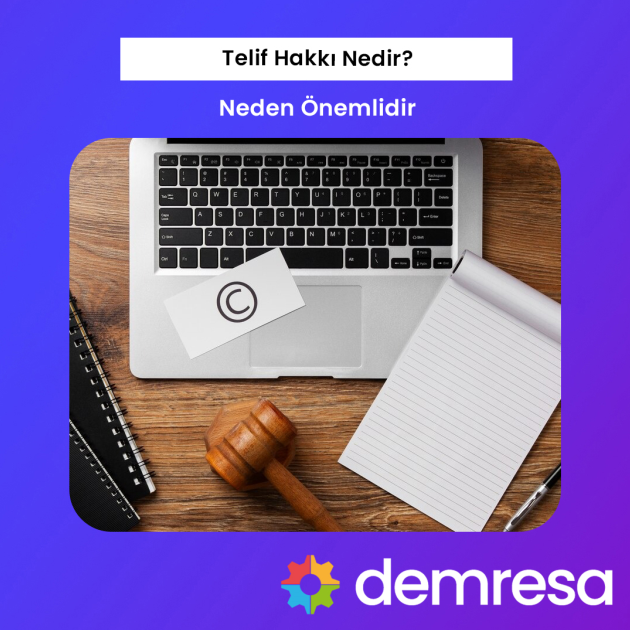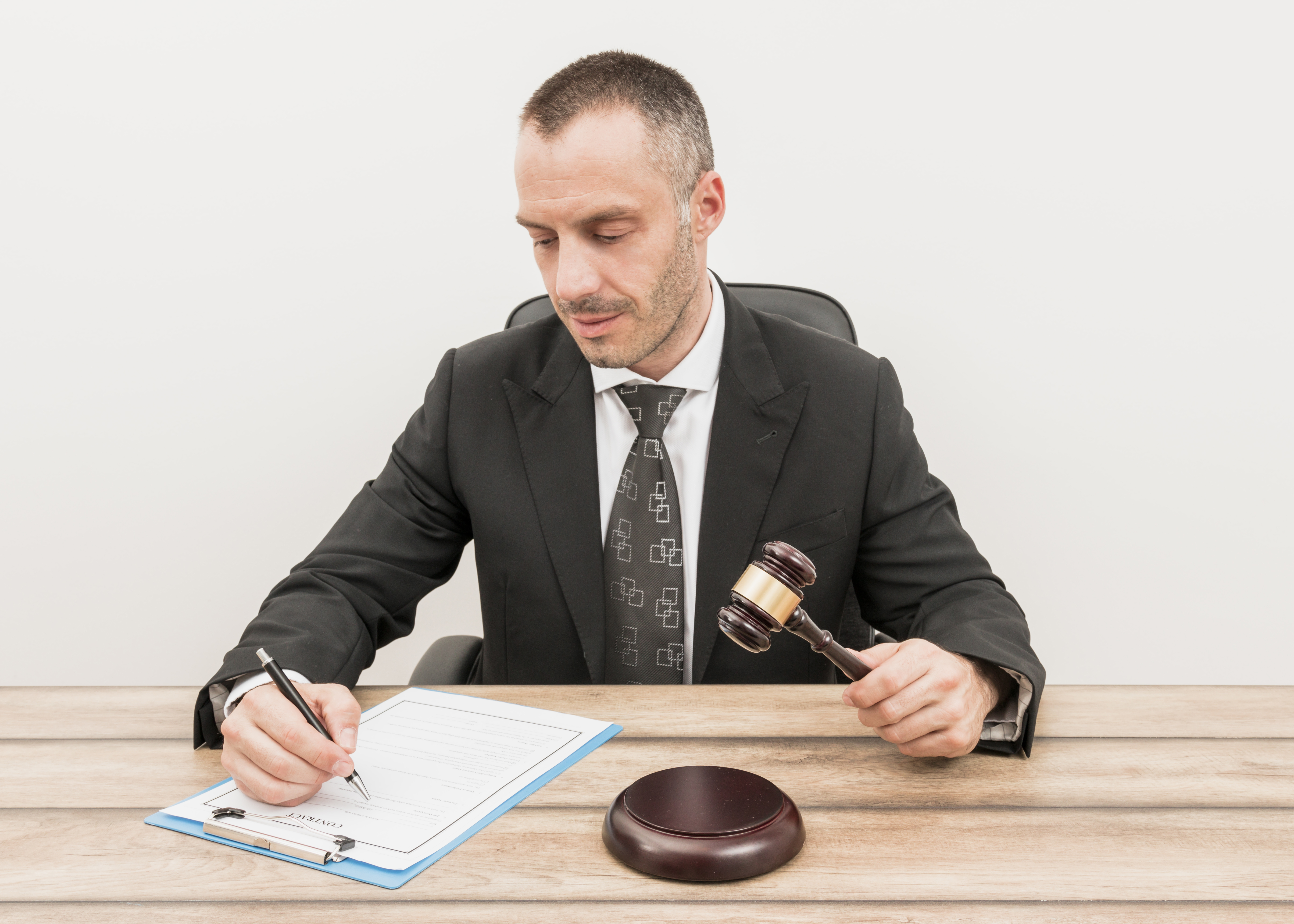
Why Is Copyright Important?
Copyright is a legal system that protects the intellectual works of individuals and institutions. This system safeguards the creators of artistic, literary, scientific, and technical works against unauthorized use of their works, securing their rights. In today's digital age with rapid information sharing, copyright has become more important than ever.
If creators fear their content might be stolen or used without permission, their motivation for creativity may diminish. Copyright laws provide a guarantee for creative individuals and organizations to produce original works.
Additionally, copyrights help individuals earn economic benefits and thus enable creative industries to grow sustainably. For example, if a musician cannot earn income from their composed pieces, continuing music production becomes difficult. Similarly, if a software developer's program is copied and used by others, it disregards their effort. Copyright laws play a crucial role in preventing such situations.
Moreover, copyright is important not only for individual content creators but also for the economic and cultural development of countries. Many sectors such as cinema, music, literature, software, and academic research grow and gain economic value thanks to copyrights.
Countries secure their cultural heritage by protecting the rights of their local artists and producers. Therefore, copyright is a concept of great importance at both individual and societal levels.
How to Get Copyright?
Contrary to popular belief, obtaining copyright usually does not require an official registration process. A work is protected by copyright from the moment it becomes the intellectual product of its owner. However, creators may want to register their works to legally protect their rights more strongly in the future.
The steps to follow for obtaining copyright are as follows:
- Originality Requirement: For a work to be eligible for copyright, it must be entirely original. Copied, altered, or derivative works are generally not covered by copyright. Originality is a fundamental condition for copyright protection.
- Recording and Documenting the Work: Before applying for copyright, the work must be recorded in a format. For example, a writer should produce a digital or printed version after writing a book, a musician should record and preserve the composed song.
- Application to Official Institutions: In Turkey, copyright registration can be applied through the General Directorate of Copyrights at the Ministry of Culture and Tourism. Additionally, methods such as notarization or sworn statements can be used to document the existence of the work.
- Fee Payment: The registration process may require certain fees. A registration fee may be paid depending on the type of process and category of the work during the copyright application.
- Obtaining the Official Registration Certificate: After the application process is completed, the copyright holder is given a copyright certificate. This document helps prove ownership and can be used as evidence in legal proceedings against unauthorized use.
This process provides a legal guarantee for copyright and allows owners to defend their rights. Those seeking international protection can also apply to the World Intellectual Property Organization (WIPO) or other international copyright registration systems.

What Are the Rights Under Copyright?
Copyright is divided into two main categories: moral rights and economic rights. Moral rights protect the personal rights of the creator, while economic rights regulate the commercial aspects of the work.
Moral Rights
Moral rights are personal rights granted to the creator and are non-transferable. These include:
- Right to Attribution: The creator can request their name to be mentioned in every use of the work. For example, an author's name should appear on the cover of their book.
- Right to Prevent Alteration: The work cannot be changed, adapted, or distorted without the creator's permission.
- Right to Public Disclosure: The creator has the authority to decide when and how the work will be published.
Economic Rights
Economic rights provide financial benefits to the creator and can be transferred. The main economic rights include:
- Right of Reproduction: Covers reproducing the work in print, digital, or other formats.
- Right of Distribution: Involves the commercial sale and distribution of the work.
- Right of Adaptation: Includes adapting or modifying the work into a different form.
- Right of Public Communication: The right to share the work via television, internet, radio, and similar media.
These rights ensure that the creator maintains full control over the work and gains economic benefits.
How Long Does Copyright Last?
The duration of copyright varies depending on the type of work and the laws of the country. In Turkey and many other countries, the copyright term is as follows:
- During the Creator's Lifetime + 70 Years: Copyright lasts throughout the creator’s life and continues for 70 years after their death.
- Joint Works: If a work is created by multiple people, the rights are protected for 70 years after the death of the last surviving author.
- Anonymous or Corporate Works: Copyright term is generally 70 years for anonymously published works. After this period, the work becomes public domain and can be freely used by anyone.
End of Copyright
Copyright ends under certain conditions:
- When the Protection Period Expires: The work becomes public domain.
- Waiver by the Creator: If the creator declares they waive their copyright, the work can be used freely.
- By Court Decision: Courts may revoke copyright in legal disputes.

What Are the Copyright Penalties?
Those who violate copyright may face various penalties. The applicable penalties in Turkey include:
- Fines: Monetary compensation can be demanded for unauthorized use and reproduction.
- Imprisonment: For severe violations, imprisonment from 1 to 5 years can be applied.
- Confiscation of Works: Copyright-infringing content can be confiscated by court order.
These penalties help protect the rights of creators and secure intellectual property.
Frequently Asked Questions About Copyright (FAQ)
What types of works are protected by copyright?
Copyright covers all original intellectual works, including:
- Books, articles, poems, and other written works.
- Musical works (songs, compositions, lyrics).
- Films, series, documentaries, and other audiovisual works.
- Photographs, paintings, and digital artworks.
- Software, codes, and applications.
- Sculptures, architectural designs, and other artistic works.
- However, simple ideas, concepts, methods, mathematical formulas, and general expressions are not covered by copyright.
Does copyright arise automatically or do I need to register?
A work automatically obtains copyright from the moment it is originally created. Having it printed, digitalized, or recorded is sufficient. However, for protection purposes, it is advisable to register with the General Directorate of Copyrights of the Turkish Ministry of Culture and Tourism or with international copyright organizations. This creates strong legal evidence in case of infringement.
What should I do if my copyright is violated?
If your work is used without permission, you can follow these steps:
- Contact the person or institution committing the infringement and request removal of your work.
- Send an official notice. Sometimes, a written warning before legal action can be effective.
- Initiate legal proceedings against the infringement. You can hire a lawyer to pursue legal action and claim financial and moral damages.
- If the infringement is online, file a DMCA complaint. You can request removal of content from platforms like Google or YouTube by reporting copyright violations.
Can I use copyrighted content by just citing the source?
No, merely citing the source does not grant permission to use the work without authorization. Copyright restricts usage to the owner's consent. While citing sources is an ethical requirement in academic or scientific works, permission must be obtained for direct use of the work.
Can I use an image or music I found online in my blog?
If an image or music is protected by copyright, using it without permission is unlawful. You can use content licensed under Creative Commons (CC0) or in the public domain. You may also use free and royalty-free images from platforms like Unsplash, Pexels, and Pixabay.
How does copyright work on YouTube, Instagram, or TikTok?
These platforms use automated scanning systems for copyright protection:
- YouTube Content ID: Copyright owners can register their content with YouTube’s Content ID system. If your video contains protected content, it can be automatically removed or generate revenue for the copyright holder.
- Instagram and TikTok: If music, video, or photos are copyright protected, the platform may remove or restrict access to the content.
What penalties apply for copyright infringement?
Copyright infringements in Turkey are subject to serious legal sanctions:
- Fines: Monetary and moral damages lawsuits can be filed.
- Imprisonment: Severe copyright infringements can lead to imprisonment from 1 to 5 years.
- Confiscation of Works: Infringing works can be confiscated by court order.
Rights holders can pursue legal remedies and claim compensation.
How can I secure a copyrighted work?
To prevent unauthorized use of your work, you can apply the following methods:
- Register copyright. Apply to official institutions to register your work.
- Add digital watermark or filigree. Add your logo and name to images or documents to deter unauthorized use.
- Use DMCA protection. Protect your website with DMCA to remove copyright-infringing content.
- Report violations on social media and platforms. You can notify YouTube, Instagram, and other platforms about copyright infringement.
What happens when copyright expires?
Works whose copyright term has expired enter the public domain and can be freely used by anyone. For example, Shakespeare’s works, Mozart’s compositions, or Leonardo da Vinci’s paintings are now public domain and can be modified, reproduced, and used by everyone.
